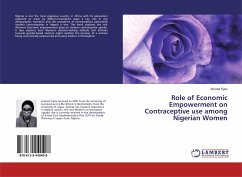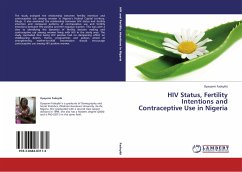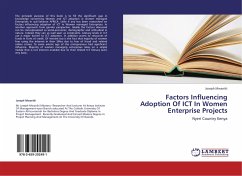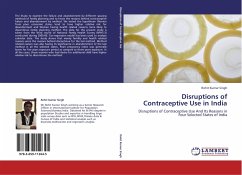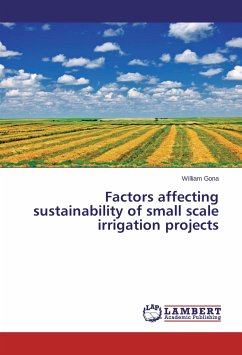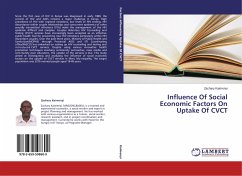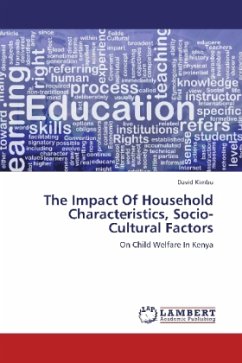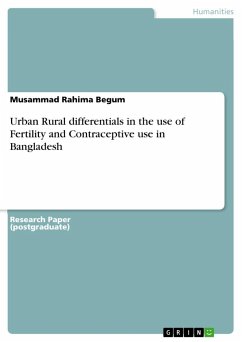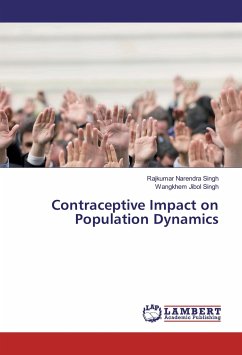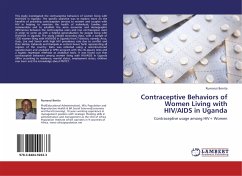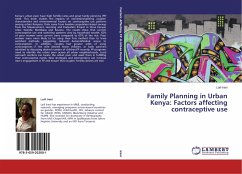
Family Planning in Urban Kenya: Factors affecting contraceptive use
Versandkostenfrei!
Versandfertig in 6-10 Tagen
41,99 €
inkl. MwSt.

PAYBACK Punkte
21 °P sammeln!
Kenya's urban poor have high fertility rates and great family planning (FP) need. This book studies the impacts of married/cohabiting couples' characteristics and environmental factors on contraceptive use patterns among urban Kenyans. Data came from baseline population-based surveys from the Measurement, Learning and Evaluation Project in three Kenyan cities: Nairobi, Mombasa and Kisumu. The results show that current contraceptive use and switching patterns vary by household wealth; 62% of poor women were current users compared to 67% of the rich. Poor women were more likely to be using their...
Kenya's urban poor have high fertility rates and great family planning (FP) need. This book studies the impacts of married/cohabiting couples' characteristics and environmental factors on contraceptive use patterns among urban Kenyans. Data came from baseline population-based surveys from the Measurement, Learning and Evaluation Project in three Kenyan cities: Nairobi, Mombasa and Kisumu. The results show that current contraceptive use and switching patterns vary by household wealth; 62% of poor women were current users compared to 67% of the rich. Poor women were more likely to be using their first method than to have switched methods, suggesting reduced demand/limited access to contraception. In addition, couples had greater odds of using contraceptives if the wife desired fewer children, or both partners admitted to discussing desired number of children/FP recently. FP programs need to identify the urban poor across all urban neighborhoods. Local outreach workers can locate the urban poor and assist them in fulfilling their contraceptive needs. New strategies and interventions can increase men's engagement in FP and ensure that couples' fertility desires are met.



